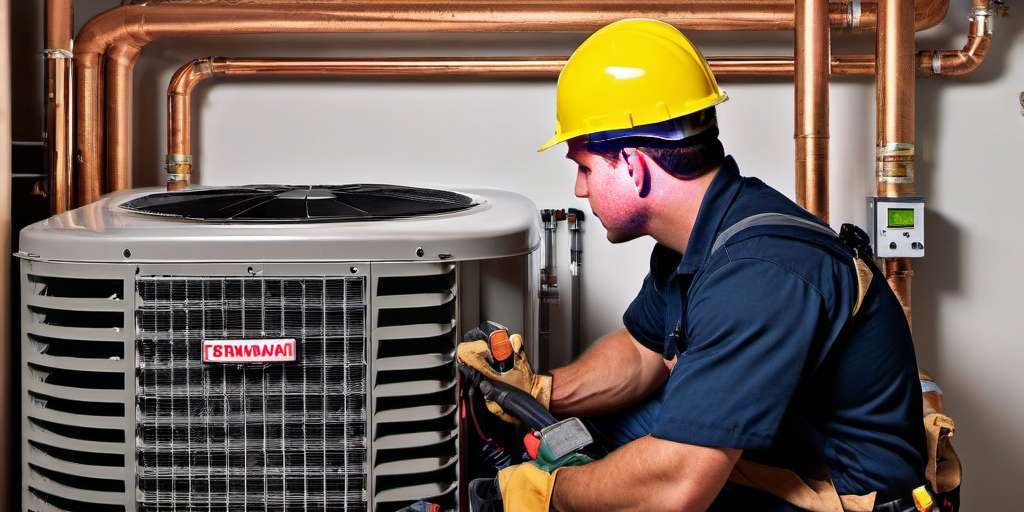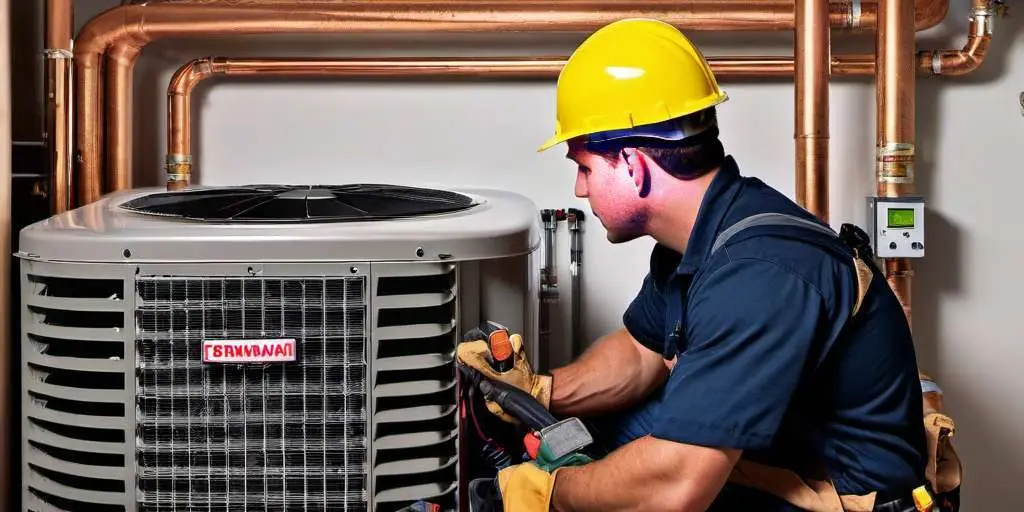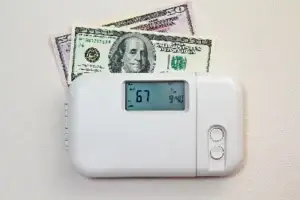Heating and Cooling Contractors: Your Guide to Expert Services
Heating and cooling contractors specialize in the installation, maintenance, and repair of HVAC systems. They ensure that homes and businesses remain comfortable throughout the year by providing essential services. These professionals are trained to handle various equipment, including furnaces, air conditioners, and heat pumps. Their qualifications often include certifications that demonstrate their expertise and adherence to safety standards.

What is an HVAC Contractor?
An HVAC contractor specializes in the installation, maintenance, and repair of heating, ventilation, and air conditioning systems. These professionals are skilled in ensuring that these systems operate efficiently and meet the comfort needs of residential and commercial spaces.
Roles and Responsibilities
HVAC contractors take on a variety of essential roles to ensure the effective functioning of climate control systems. Their primary responsibilities include:
- Designing customized HVAC systems that meet specific building requirements.
- Installing new heating and cooling units, including furnaces, air conditioners, and heat pumps.
- Conducting regular maintenance services to extend the lifespan of equipment.
- Diagnosing and repairing system faults to restore functionality.
- Providing energy efficiency consultations to help clients reduce operational costs.
- Responding to emergency service calls for urgent repairs outside of regular business hours.
Qualifications and Certifications
To operate as an HVAC contractor, professionals must possess a variety of qualifications that demonstrate their expertise and adherence to industry standards. Key qualifications and certifications include:
- Licensing: Most states require HVAC contractors to hold a valid license that indicates they have met necessary training and regulatory standards.
- Certification: Various organizations offer certifications that validate a contractor’s proficiency in specific areas, such as NATE (North American Technician Excellence) or EPA (Environmental Protection Agency) certification for handling refrigerants.
- Training: HVAC contractors usually undergo formal training through technical schools or apprenticeships that cover essential skills and safety protocols.
- Experience: Hands-on experience in the field is crucial for honing practical skills and understanding system complexities.
Services Offered by HVAC Contractors
HVAC contractors provide a variety of essential services to ensure indoor comfort throughout the year. Their expertise encompasses installation, maintenance, repair, and emergency services for heating, ventilation, and air conditioning systems.
Installation Services
Installation services are critical for setting up efficient HVAC systems. These contractors assess the specific needs of a space before recommending and installing the appropriate systems.
New HVAC Systems
The installation of new HVAC systems involves selecting equipment based on the size and type of the property. Proper sizing is essential for optimal performance and energy efficiency. Contractors will evaluate factors such as square footage, insulation, and climate to determine the best system for the client’s needs.
Furnace Installation
Furnace installation is a specialized service provided by HVAC contractors. They recommend the right type of furnace, which may be gas, electric, or oil-based. The installation includes setting up ductwork and ensuring that the furnace operates safely and effectively, complying with local building codes.
Maintenance Services
Regular maintenance of HVAC systems is vital in extending their lifespan and improving energy efficiency. Contractors offer various maintenance services tailored to client needs.
Duct Cleaning
Duct cleaning service removes dust, debris, and allergens from HVAC ductwork. This process improves indoor air quality and system efficiency, as clean ducts allow for better airflow and reduced strain on HVAC units.
HVAC System Tune-Ups
Tune-ups involve a thorough inspection and servicing of HVAC systems to ensure they operate optimally. This service typically includes checking refrigerant levels, inspecting electrical connections, and cleaning components to prevent breakdowns and enhance efficiency.
Repair Services
When HVAC systems malfunction, timely repair services are crucial to restore comfort. Contractors are equipped to handle a range of repairs efficiently.
Furnace Repair
Furnace repairs can range from minor fixes to major component replacements. HVAC contractors diagnose issues such as irregular heating, strange noises, or pilot light problems, and implement necessary repairs to restore proper function.
Air Conditioning Repair
Air conditioning repair services address problems like insufficient cooling, refrigerant leaks, or frozen coils. Contractors utilize diagnostic tools to pinpoint issues and make repairs that ensure systems run smoothly.
Heat Pump Repair
Heat pump repair services are essential for units that serve both heating and cooling functions. Contractors troubleshoot issues related to airflow, efficiency, and functionality to keep systems performing effectively throughout the year.
Emergency Services
HVAC contractors often provide emergency services for unexpected system failures. These urgent repairs are essential during extreme weather conditions, ensuring that heating or cooling is restored promptly.
Energy Efficiency Consultations
Energy efficiency consultations involve assessing existing HVAC systems and recommending improvements. Contractors analyze energy consumption patterns and suggest upgrades or modifications that can lead to significant cost savings on utility bills while maintaining comfort standards.
Finding a Local HVAC Contractor
Locating a qualified HVAC contractor in your area is essential for ensuring quality service and reliable installation or repair of your heating and cooling systems. A local contractor is familiar with regional climate needs and building codes, making them an ideal choice for homeowners and businesses.
Search Tips for ‘Heating and Cooling Contractors Near Me’
When searching for local HVAC contractors, utilizing specific keywords can enhance the results. Here are some effective strategies:
- Use search engines with phrases like “HVAC contractors near me” or “heating and cooling services in [your city].”
- Check local online directories or review platforms to find top-rated contractors.
- Leverage social media platforms to seek recommendations and see local business profiles.
- Ask neighbors or friends for referrals based on their past experiences.
Tips Specific to ‘Albuquerque Heating and Cooling Contractors’
Albuquerque experiences unique climate conditions, making it vital to find contractors who understand local requirements. Consider these pointers:
- Look for contractors who are familiar with the specific heating and cooling challenges in the Albuquerque area.
- Verify if the contractors offer services tailored to the high desert climate, such as evaporative cooling systems.
- Check if they are knowledgeable about local building codes and energy efficiency standards to ensure compliance.
- Seek contractors who have a solid local reputation and have been operating in the area for several years.
Utilizing Online Reviews and Ratings
Online reviews are a valuable resource when searching for HVAC contractors. Reviews can provide insights into the quality of service, timeliness, and overall customer satisfaction. Here are ways to make the most of online reviews:
- Explore multiple review sites to get a balanced view of the contractors’ reputation.
- Pay attention to detailed reviews that address specific services like installation or repairs.
- Look for trends in feedback, such as consistent praise or complaints about particular contractors.
- Evaluate ratings over time to see if service quality has improved or declined.
Understanding the cost considerations for HVAC services is essential for homeowners and business owners alike. A well-informed decision can lead to better budgeting and ensure that quality service is received at a fair price.
Cost Considerations for HVAC Services
Installation Costs
Installation costs for HVAC systems can vary widely based on many factors, including the type of system, the size of the property, and the complexity of the installation. Below are insights into average costs and factors that influence these expenses.
Average Costs for New Systems
The cost of installing a new HVAC system typically ranges from $3,000 to $10,000. The final price largely depends on the specifics of the installation. For example, a basic central air conditioning unit can cost around $3,000 to $5,000, while a comprehensive system including heating can push the price higher. Below are some specific ranges for popular systems:
- Central Air Conditioning: $3,500 – $7,500
- Furnace Installation: $2,500 – $6,000
- Heat Pumps: $4,000 – $8,000
Factors Affecting Installation Costs
Several elements can influence the overall installation costs for HVAC services, including:
- System Type: Different HVAC systems come with varying price tags based on their technology and efficiency ratings.
- Home Size: Larger spaces typically require more powerful systems and greater installation work.
- Existing Infrastructure: If ductwork needs to be replaced or adapted, this can add to overall costs.
- Labor Costs: Expenses may vary by location and the contractor’s expertise.
Repair Costs
Repairing HVAC systems can also lead to varying expenses, which often depend on the specific issue and the type of system being serviced. Understanding common repair prices and tips for cost savings can help manage these unexpected expenses.
Common Repair Prices
The costs associated with repairing HVAC systems can range from minor expenses to major financial outlays. Here are some typical repair costs:
- Furnace Repair: $100 – $1,500
- Air Conditioning Repair: $100 – $1,200
- Heat Pump Repair: $200 – $2,000
Cost-Saving Tips
To manage repair costs effectively, consider the following strategies:
- Regular Maintenance: Scheduling annual maintenance checks may detect issues early before they escalate into major repairs.
- Energy Efficiency: Investing in energy-efficient systems can reduce long-term operational costs and lead to fewer repairs.
- Warranty Options: Look for warranties that may cover repairs, especially for new installations.
Choosing the Right HVAC Contractor
Selecting the appropriate HVAC contractor is essential for ensuring quality installation and maintenance of heating and cooling systems. A qualified contractor can make all the difference in the performance and longevity of HVAC equipment.
Checking Credentials and Licenses
Verifying the credentials and licenses of potential HVAC contractors is a critical first step in the selection process. Licensed contractors have met specific state and local requirements, demonstrating their proficiency in HVAC work. The following aspects should be considered:
- State Licenses: Ensure the contractor holds the necessary state licenses to operate legally in the area.
- Certifications: Look for professional certifications, such as those from NATE (North American Technician Excellence) or ACCA (Air Conditioning Contractors of America).
- Insurance: Confirm that the contractor carries liability insurance and worker’s compensation coverage to protect against potential accidents or damages during work.
Asking for Quotes and Estimates
Obtaining quotes and estimates from multiple contractors is advisable to understand the pricing structure and what each contractor offers. When inviting contractors to provide estimates, consider these tips:
- Detailed Breakdowns: Request thorough explanations of the costs involved, including labor, materials, and any other fees.
- In-Person Assessments: A reputable contractor should conduct an on-site evaluation to provide a more accurate estimate based on the specific needs of the property.
- Comparative Analysis: Compare the quotes not merely on price, but also on the services included and the contractor’s reputation.
Evaluating Past Customer Reviews
Reviews from previous customers offer insight into the reliability and quality of work performed by HVAC contractors. When assessing reviews, focus on the following aspects:
- Star Ratings: Look for contractors with high ratings, ideally 4 stars and above, which indicate customer satisfaction.
- Detailed Feedback: Read through reviews to gauge specific experiences, particularly regarding the overall service experience and any follow-up service.
- Response to Criticism: Evaluate how contractors respond to negative reviews, as this can reflect their commitment to customer service and satisfaction.
Interviewing Potential Contractors
Once a shortlist of potential contractors is established, interviewing them can help finalize the decision. Key topics to cover during these interviews include:
- Experience: Inquire about their years in the business and experience with specific HVAC systems.
- Work Guarantees: Ask about warranties or guarantees associated with their work, which reflect their confidence in their services.
- Timeline and Scheduling: Discuss availability and timeframes for beginning and completing the work.
Interviewing contractors can illuminate their professionalism and ability to meet project requirements, ensuring that the right choice is made.
Ensuring Quality and Efficiency
Ensuring quality and efficiency in HVAC systems is essential for maintaining comfort and minimizing energy costs. Regular maintenance and timely upgrades contribute significantly to system performance and longevity.
Importance of Regular Maintenance
Regular maintenance plays a crucial role in keeping HVAC systems running smoothly. It involves scheduled inspections and servicing to prevent potential issues before they arise. The benefits of routine maintenance include:
- Increased lifespan of equipment: Regular check-ups extend the life of HVAC systems, saving money on replacements.
- Enhanced energy efficiency: Well-maintained systems operate more efficiently, reducing energy consumption and utility bills.
- Improved air quality: Routine maintenance helps ensure that ducts and filters are clean, promoting healthier indoor air quality.
- Prevention of costly repairs: Addressing minor issues during maintenance can prevent more significant, more expensive repairs down the line.
Establishing a maintenance schedule with a qualified HVAC contractor ensures that systems receive the attention they need throughout their operational life.
Seasonal System Checks
Conducting seasonal system checks is essential for preparing HVAC units for the changing weather. These checks should be performed prior to the major heating and cooling seasons.
Preparing for Winter
Before winter sets in, it’s important to ensure that heating systems are fully operational. Key tasks during a winter check include:
- Inspecting and replacing air filters.
- Checking thermostat settings and calibration.
- Inspecting ductwork for leaks.
- Cleaning and maintaining the furnace or boiler.
Preparing for Summer
As summer approaches, HVAC contractors typically perform checks to optimize cooling systems. Essential tasks include:
- Cleaning condenser coils.
- Checking refrigerant levels and recharging if necessary.
- Testing the thermostat operation and accuracy.
- Inspecting and cleaning the air conditioning unit’s evaporator coils.
These seasonal checks ensure that systems operate effectively and efficiently when they are needed most.
Upgrading Old Units
Upgrading old heating and cooling units can lead to significant improvements in efficiency and comfort. Older systems often consume more energy, increasing costs and diminishing performance. The decision to upgrade should be based on several factors:
- Age of the existing unit: Most HVAC systems have a lifespan of 10 to 15 years. If a system is approaching or exceeding this age, replacement should be considered.
- Rising energy bills: An unexpected increase in utility costs may indicate that an older system is no longer efficient.
- Frequent repairs: If an HVAC system requires repairs more than once or twice a year, it may be more cost-effective to invest in a new unit.
- Availability of new technologies: Advances in HVAC technology provide options that offer enhanced efficiency and eco-friendliness.
Ultimately, upgrading to a newer, more efficient system can lead to savings in energy costs and increased comfort in residential and commercial spaces.
Benefits of Hiring Certified HVAC Technicians
Hiring certified HVAC technicians comes with numerous advantages that ensure high-quality work, compliance with regulations, and enhanced safety measures. These benefits contribute greatly to maintaining efficient heating and cooling systems in residential and commercial properties.
Compliance with Local Codes
Certified HVAC technicians are well-versed in the local codes and regulations that govern HVAC installations and repairs. Their knowledge ensures that all work performed adheres to specific legal requirements and industry standards.
- Understanding of Building Codes: They are trained to interpret and implement regional building codes which dictate the minimum standards for construction and installation practices.
- Permits and Inspections: Certified professionals often assist in securing necessary permits and scheduling inspections. This ensures that the installation meets local regulations and passes official verification.
- Up-to-date Knowledge: These technicians regularly undergo training to keep abreast of changes in codes and regulations, ensuring compliance with the latest requirements.
Safety and Professional Standards
Ensuring safety in HVAC installations and repairs is paramount. Certified technicians follow strict professional standards that minimize risks associated with HVAC systems.
- Adherence to Safety Protocols: They are trained in safety protocols that prevent accidents and injuries during installation and maintenance. This includes proper handling of tools, equipment, and hazardous materials.
- Minimizing Liability: Hiring certified professionals reduces liability risks regarding property damage or personal injury that may occur during work. Their insurance protects homeowners and businesses in case of unforeseen incidents.
- Quality Assurance: Certification reflects a commitment to quality and professionalism. Technicians are typically required to complete continuing education to maintain their status, ensuring they provide services that meet high-quality standards.
Latest Trends in HVAC Industry
The HVAC industry is continually evolving, incorporating innovative technologies and sustainable practices to enhance efficiency, comfort, and environmental responsibility. Keeping up with these trends is essential for homeowners and businesses looking to optimize their HVAC systems.
Smart HVAC Systems
Smart HVAC systems represent a significant advancement in the way heating and cooling are managed. These systems integrate technology that allows for remote monitoring and control via smartphones and other devices. Key features include:
Automated Temperature Control
Smart systems can adjust heating and cooling settings based on learned preferences, maintaining optimal comfort while reducing energy consumption.
Energy Consumption Monitoring
Homeowners can track their energy usage in real time, making it easier to identify inefficiencies and alter habits to save on utility bills.
Integration with Home Automation Systems
These systems can seamlessly work with other smart home devices, such as lighting and security systems, to provide a comprehensive home management experience.
Eco-Friendly HVAC Solutions
The push toward sustainability has driven the development of eco-friendly HVAC solutions. These innovations aim to reduce the environmental impact while maintaining effectiveness. Important aspects include:
Refrigerants with Low Global Warming Potential
Modern HVAC units are now often designed to use refrigerants that have a minimal impact on global warming, aligning with global climate initiatives.
Solar-Powered Systems
Integration of solar panels with HVAC systems allows homes to harness renewable energy for heating and cooling, significantly cutting down utility costs.
High-Efficiency Equipment
New heating and cooling systems are increasingly rated for high-efficiency performance, providing better service while consuming less energy.
Predictive Maintenance Technologies
Predictive maintenance technologies are transforming how HVAC systems are serviced. By utilizing advanced sensors and data analytics, these systems can anticipate issues before they become critical. Key components include:
Real-Time Diagnostics
HVAC systems can monitor their own performance parameters and send alerts to contractors or homeowners when anomalies are detected.
Data Analysis
Collected data helps predict potential failures, enabling proactive maintenance and reducing the likelihood of costly repairs.
Increased System Longevity
By addressing issues before they escalate, predictive maintenance extends the lifespan of HVAC systems, ensuring long-term efficiency and reliability.





